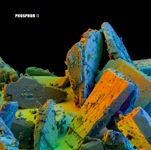Home » Jazz Articles » Album Review » Fred Anderson: Staying in the Game
Fred Anderson: Staying in the Game
Therefore, it is highly unlikely that even difficult program music such as this will be played without a great deal of sympathy, understanding and inspiration. The long opening song, "Sunday Afternoon," is briskly introduced by Bankhead and Daisy before inviting a quiet, interweaving tenor conversation. The elegant harmonic report reflects a recent heady spiritual experience perhaps, and by the midsection of the song a full-blown discussion is on like a Sunday service. Anderson is assertive and almost preachy, but leading the deeply meditative ensemble through a contrapuntal section through to a final resolution of sorts. From an ostinato bass passage, interdicted by slashing drums, the elements of the tune are all bound together by Anderson's warm, reassuring tonal variations.
"The Elephant and the Bee" is another puckish, programmatic piece; and in some sense, makes oblique reference to Rimsky-Korsakov's famous opera "The Flight of the Bumblebee," albeit in a deeply reverential way. Here, while Daisy keeps the rhythmic heart of the song pulsating and sometimes fibrillating, Anderson's tenor plays the mastodon's character with aplomb. Bankhead switches between rapid-fire arco and irregular, almost maniacal, pizzicato phrases that fly across the bass. The song is maintained with brilliant energy and always innocuous humor.
The next three songs, "60 Degrees in November," "Wandering" and "Springing Water," are at least thematically connected. All traverse a rugged soundscape and depict the bleak nature of a planet spinning out of control. The music here is deliberately cold and dispassionate, almost as if each song was bereft of a soul in order to highlight the predicament of the earth that sustains us. Such impressionism is dark and exquisitely executed by tight ensemble work, relentlessly led by Anderson's energy, with Bankhead and Daisy firing on all cylinders right behind him.
"Changes and Bodies and Tones," closes this short set, and what an exquisitely tongue-in-cheek song with which to do so. Despite the percussive introduction—Anderson has a right to surprise—and the high-register bass intro, this twists itself into a brilliant reconstruction of the classic standard, "Body and Soul."
It takes genius to make a record like this. In Fred Anderson's case, it also takes a great deal of integrity and courage, because it is never easy to allow the music to take over the inner voice of an artist—the one that comes from his very soul.
Track Listing
Sunday Afternoon; The Elephant and the Bee; 60 Degrees in November; Wandering; Springing Winter; Changes and Bodies and Tones.
Personnel
Fred Anderson
saxophoneFred Anderson: tenor saxophone; Harrison Bankhead: bass; Tim Daisy: drums.
Album information
Title: Staying In The Game | Year Released: 2009 | Record Label: Engine
Tags
PREVIOUS / NEXT
Support All About Jazz
 All About Jazz has been a pillar of jazz since 1995, championing it as an art form and, more importantly, supporting the musicians who make it. Our enduring commitment has made "AAJ" one of the most culturally important websites of its kind, read by hundreds of thousands of fans, musicians and industry figures every month.
All About Jazz has been a pillar of jazz since 1995, championing it as an art form and, more importantly, supporting the musicians who make it. Our enduring commitment has made "AAJ" one of the most culturally important websites of its kind, read by hundreds of thousands of fans, musicians and industry figures every month.





















